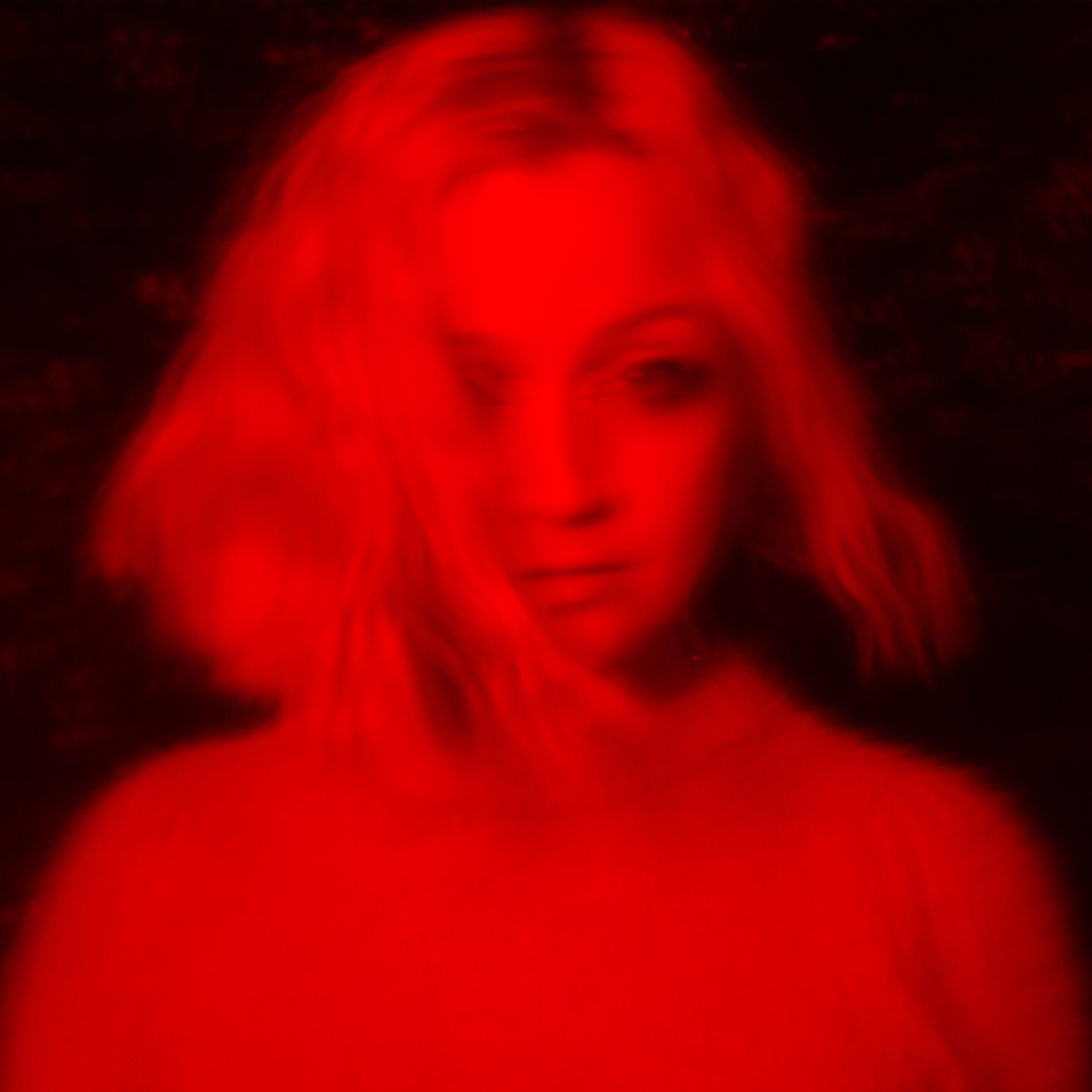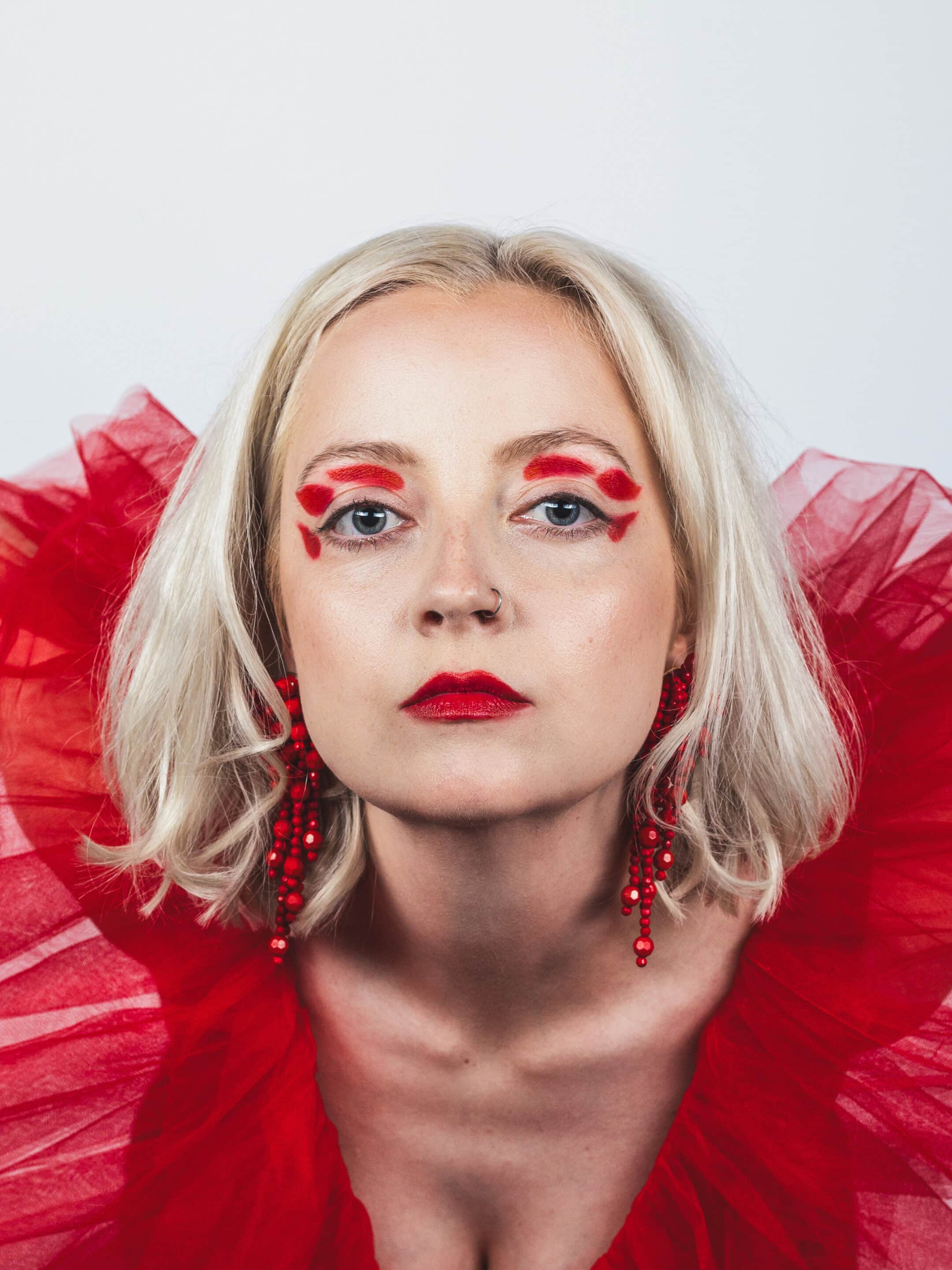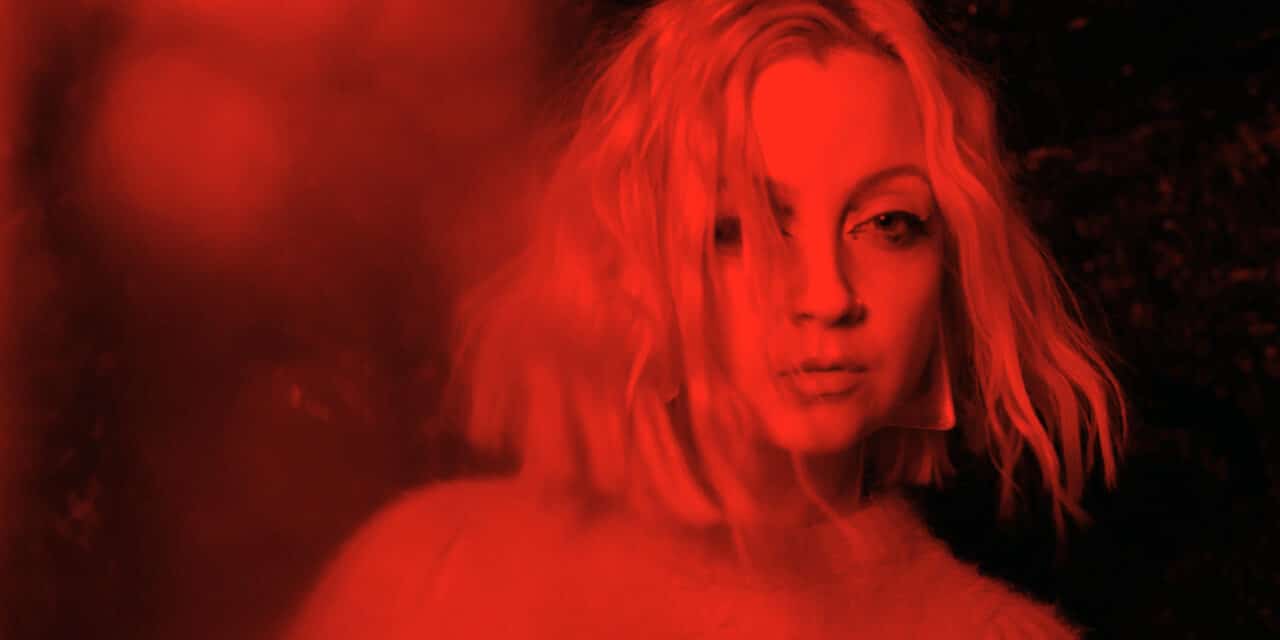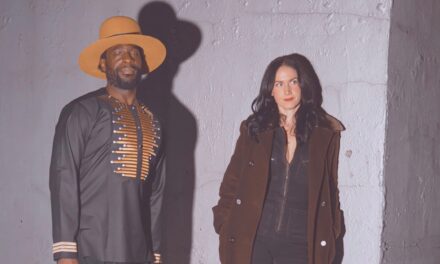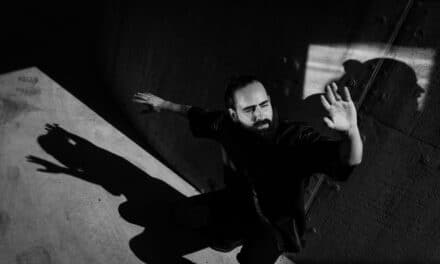Floating somewhere between life, death, and the dreamscape in between, Caswell returns with “Final Call” — a luminous, late-night slow-burner that feels like it’s whispering to you from the edge of another dimension. Out now (June 13) and lifted from her long-awaited debut album Break/Bleed/Bloom (dropping October 1), this is the sound of a Suffolk alt-pop star stepping fully into her celestial power.
Fusing downtempo electronica with the soft shimmer of dream-pop and the sharp hooks of intelligent indie-pop, “Final Call” is a meditation on mortality — but it sounds like resurrection. Fuzzy, modulated basslines rub against glittering synth accents, lo-fi beats pulse like a slow heartbeat, and Caswell’s vocals float high above it all: soft, soulful, but commanding. It’s cinematic without being overstated, intimate without losing scale — think Beach House if they’d grown up on Burial and Radiohead.
“Final Call explores the concept of reincarnation and a playful curiosity about death,” Caswell explains. “There’s beauty in knowing we’re part of this ancient, cyclical network of life. Maybe death is just a fallow period of rest—before we become something else entirely.”
It’s not exactly your average pop single theme, but then again, Caswell has always colored outside the genre lines. Ever since winning a nationwide competition to support Ed Sheeran in front of 40,000 fans, she’s continued to carve her own lush, introspective lane — lighting up festival stages from Latitude to Reading & Leeds, and converting crowds with a magnetic stage presence that’s all glow, no glare.
Off-stage, she’s racked up co-writing credits on European radio hits (hello, Michael Schulte’s “All I Need”), landed syncs on British TV staples like This Morning, and found a cozy home on BBC Radio 1, 1xtra, and 6 Music. The press — Clash, The Line of Best Fit, Wonderland, Record of the Day — have all taken note. But “Final Call” feels like a shift: not just a moment, but a marker.
This is the Caswell era where beauty meets bravery. Where songwriting digs deeper. Where the bedroom-pop softness of her earlier work collides with philosophical urgency. And where she stops asking questions and starts making peace with the unknown.
“Final Call” is the moment before the curtain drops — or maybe the moment right after it lifts again. Either way, Caswell is making music for that in-between space, and we’re all the better for it.
Break/Bleed/Bloom drops October 1. Expect tears. Expect transcendence. And expect to hit repeat.
“Final Call” explores themes of reincarnation and our relationship with death in such a refreshing and poetic way. What inspired you to approach such a traditionally taboo topic with playfulness?
Thank you! I think when you start to view the circle of life through a more pagan/celtic pov it feels less daunting and more beautiful. I liked the juxtaposition of the playfulness around this serious theme, like, we know the inevitability of death, so we should be trying to find as much play, joy and curiosity in every moment possible.
Sonically, the track blends lo-fi beats, fuzzy bass, and shimmering synths. What was your vision for the soundscape of “Final Call,” and how did you work to achieve it?
So it was actually the first song written by just me and my bassist and drummer, so we were working mainly with bass and drums which is why it starts with so much space, which as super simple but effective. We then added in glittery layered synths and backing vocals via the production to give it that ethereal-epic touch.
There’s a delicate balance in your music between intimacy and cinematic scale. How do you approach production and songwriting to hold those two energies at once?
I think it really comes down to the topline (what we call the vocal part that is inclusive of melody and lyrics). No matter the instrumental, if you have a vocal line which really stands on it’s own, and holds power and meaning lyrically, you can make anything big production-wise feel poignant and like it was just meant for that one person’s ears.
You mentioned that nature helps you feel present and connected to the cyclical nature of life. How does that connection to the natural world influence your creative process overall?
Since me and my band started writing together we have done four writing retreats, and the location is always so so important when inspiring your vision and energy as a writer and also contributes hugely to how the end product. Our favourite spot in West Wales has the most moving landscape which has resulted in some of the most dramatic and beautiful songs we’ve written. The natural world is fuel for the writer because it helps you to feel so present.
The title of your debut album Break/Bleed/Bloom is incredibly evocative. What does that progression represent for you personally and artistically?
Break/Bleed/Bloom is about how every loss, death or heartbreak feeds into a new period of growth. Too often we want to rip ourselves out periods of depression, rush into a rebound or hurry onto the next project before allowing ourselves time to rest and integrate the lessons we might really need to learn. Society doesn’t celebrate this natural process when we are constantly being encouraged to be productive and achieving. Break/Bleed/Bloom is about the the beauty that follows leaning into those dark parts of yourself.
You’ve performed for 40,000 people with Ed Sheeran and played major festivals. How does that live experience feed into your studio recordings — or does it feel like an entirely different world?
For me the writing room, recording studio and stage are all totally different worlds. In each space I am faced with a shadow aspect of myself and have to confront difficulties that allow me to learn incredible things. They all require total presence, creativity and standing in your power in different ways, though.
From BBC airplay to sync placements, your music has found a broad reach. How do you stay grounded in your artistic vision while your audience continues to grow?
I think with the noise of so many new artists, platforms and audience expectations the biggest thing is to not be tempted to make or do things you ‘think’ you should do. No matter what the outcome of the music is, I have to try and do what is most authentic to me, because then it will always mean something and be worth it.
You’ve co-written for other artists, like Michael Schulte. How does your creative approach differ when you’re writing for someone else versus writing as Caswell?
It’s so freeing! I feel like I’m far less critical and therefore it flows, like many things in life. More co-writes please!!
You seem unafraid to tackle themes of transformation and emotional complexity in your work. Has writing this album changed your relationship to vulnerability?
Yes this has album holds some of the most challenging and vulnerable pieces of music I’ve ever written. It was partly inspired by a book called Women Who Run With The Wolves which just changed so much of the way I viewed myself as a woman and my creative power. I took the energy of that book and it helped me to take risks and use my voice to say something bigger.
What do you hope listeners walk away with after hearing Final Call — and eventually the full album Break/Bleed/Bloom?
I hope they feel a empowered, magical, a little whimsical and like they might want to dance after a little cry.
